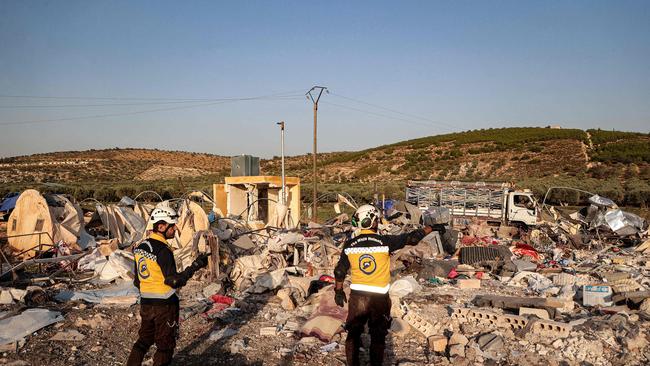
But the photograph is not from Gaza. And no rallies will be held in Western capital cities for these Palestinians.
From 2013 to 2015 the Yarmouk Palestinian refugee camp outside Damascus in Syria was laid siege by the Assad regime.
The United Nations Relief and Works Agency for Palestine Refugees in the Near East reported it was able to supply only “20 per cent of the food needs” to the Yarmouk population. In 2015, Yarmouk was stormed by ISIS and the camp remained sealed. The men, women and children who remained were subjected to severe deprivation.
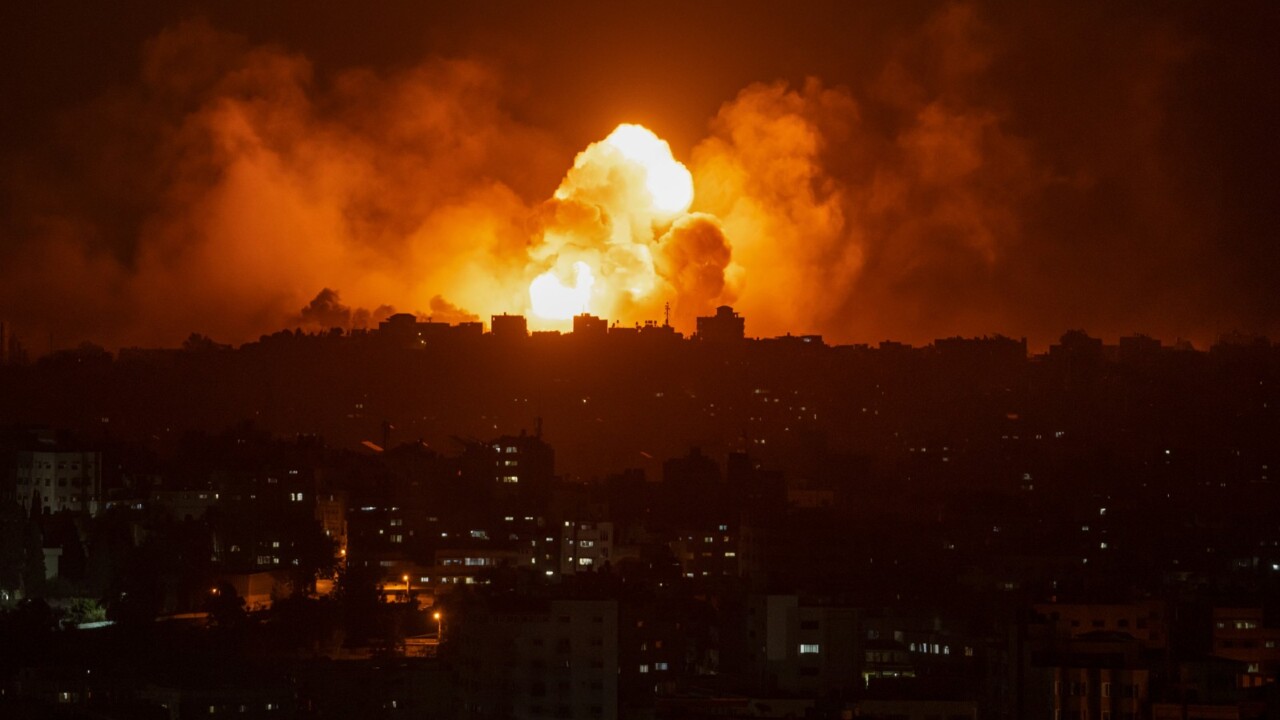
This was but a single episode in the Syrian civil war – the deadliest conflict seen this century. The war has claimed more than 200,000 lives and displaced more than 10 million people since it began over 10 years ago. The Action Group for Palestinians in Syria estimates 5522 Palestinians have died in the conflict since 2011.
For reasons not readily apparent, the pro-Palestinian movement in the West remained largely silent when it came to this tragedy. There were no solidarity marches in Sydney or Melbourne for Yarmouk. Despite the deliberate targeting of civilians with chemical weapons, there were no large-scale protests against Bashar al-Assad’s regime.
Of course, selective outrage over human rights abuses is nothing new. Focusing on one tragedy over another is a perennial limitation of human nature. And what conflicts we do focus on can, at times, be hard to foretell. In 2017, the genocide of Rohingya Muslims in Myanmar received little attention in the Western media.
Today, the world’s attention is fixated on the Israel-Hamas war. Meanwhile, the civil war in Sudan deepens, and Armenians in Azerbaijan face a growing catastrophe.
In the Middle East, the UN estimates 150,000 people have died so far in the Yemeni civil war, with a further 227,000 perishing from associated famine. Human rights groups claim one million Uighurs are interned in Xinjiang’s re-education camps. Many have reportedly faced torture and forced sterilisation. But none of these ongoing tragedies attracts significant solidarity movements in the West.

You will not see people arguing on social media over the war in Yemen. You will not see university students with placards calling for the Rohingya to be freed. And you will not see 30,000 people gathering in Hyde Park in support of the Uighur liberation.
But what we have learned over the past two weeks has been revealing. We have learned that if a march opposes Israel – and if it is held in the wake of a deadly attack on innocent Israeli civilians – not only will it attract large crowds. It will be fused with an atmosphere of exultation.
Some of those marching in these events will be doing so out of genuine compassion for Palestinian lives. Others will be marching out of ignorance. And another group will be doing so out of extremism. Some will be motivated by theological teachings, which dehumanise the Jewish people and call for the destruction of Israel. Others will have been radicalised by academic theories of “whiteness” and “decolonisation”. Others will be there simply to go along with the crowd.
Many young leftists in the West have no awareness of the existence of Mizrahi Jews, who are native to the Middle East. They have no understanding that millions of Israelis are descended from Jews, who have always lived in the region, or came as refugees from neighbouring Arab lands.
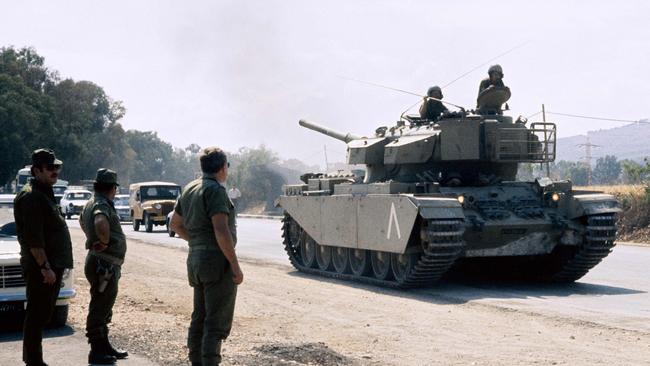
This dovetailing of ignorance with extremism has created a dangerous environment for our Jewish citizens, as Westerners parrot pro-Palestinian slogans that implicitly call for violence against the Israeli people without knowing what they mean.
We have seen what happens when anti-Semitism is allowed to fester. As a true minority, the Jewish community does not have the numbers to fight back. We all know how this dark evil plays out.
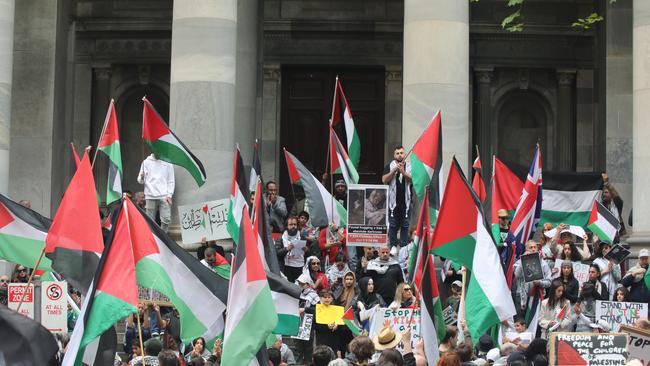
But masquerading as “Palestinian solidarity”, anti-Semitism appears once again to be gaining a foothold in the mainstream. It has embedded itself in the chants and slogans repeated by university students, and in the academic theories that pit “oppressors” against the “oppressed”.
At George Washington University in Washington DC, students projected the slogan “GLORY TO OUR MARTYRS” on their campus library. In central London, smiling activists rip down posters of Israeli kidnap victims. And in Australia a pro-Palestinian protest ended with chants of “gas the Jews” at the steps of the Opera House.
The pro-Palestinian solidarity movement will claim it marches in defence of Palestinian life. But what we have learned from the movement’s selective outrage is that the only Palestinian deaths that matter are those that can be blamed on Israel.
Claire Lehmann is founding editor of online magazine Quillette.



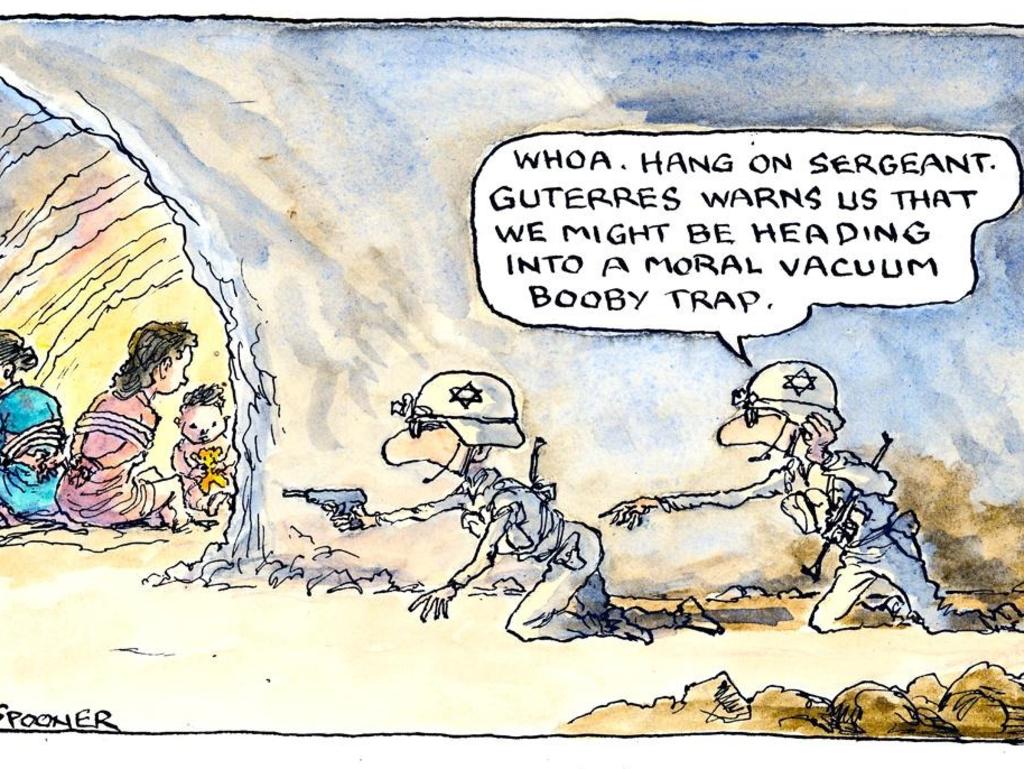




A striking photograph shows hundreds of Palestinians squeezed together queuing for food in the morning sunlight. Living with severe hunger and without electricity or water, a journalist on the ground describes dire conditions. Aid workers deliver much-needed food and water. The same workers report they hear stories of people starving to death.